News
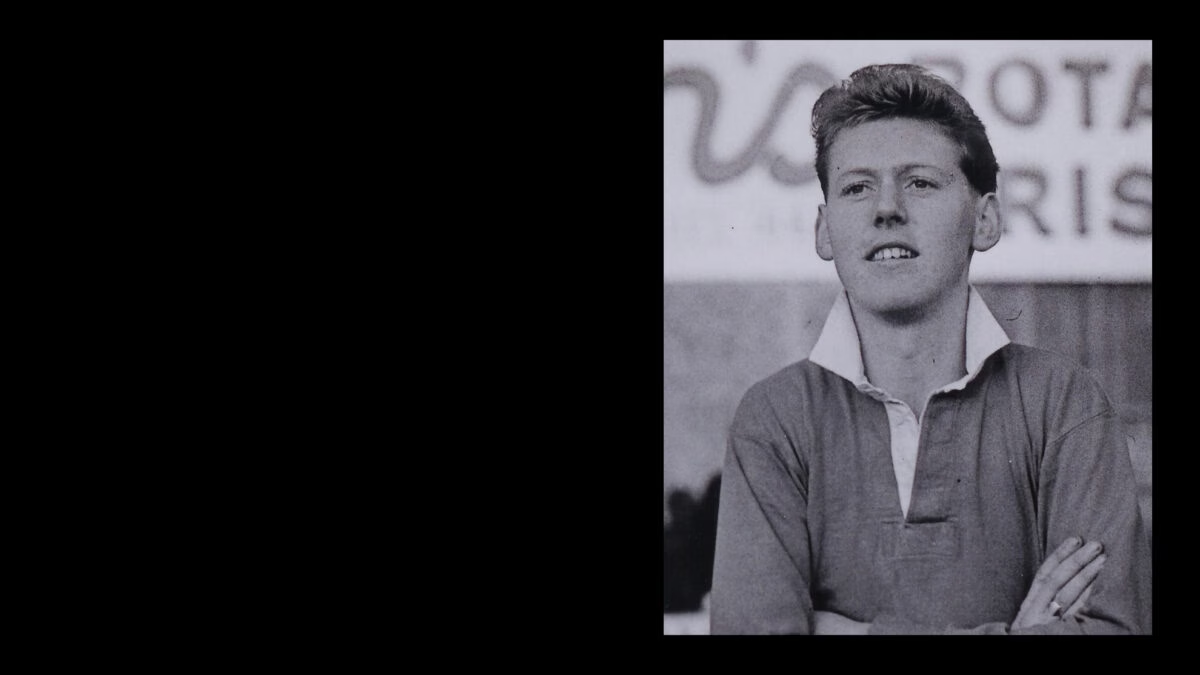
In Memoriam | Bobby Wilson
Aberdeen Football Club were saddened to learn of the passing of our former player and dear friend, Bobby Wilson.
Robert, or Bobby as he was known during his career at Pittodrie, was a member of Aberdeen’s Scottish League Cup winning team that beat St Mirren 2-1 in the autumn of 1955 at Hampden. He was the last surviving member of that famous side, and so another era in the club’s history comes to a close.
The XI that won the League Cup for the first time was: Martin, Mitchell, Caldwell, Wilson, Clunie, Glen, Leggat, Yorston, Buckley, Wishart and Hather.
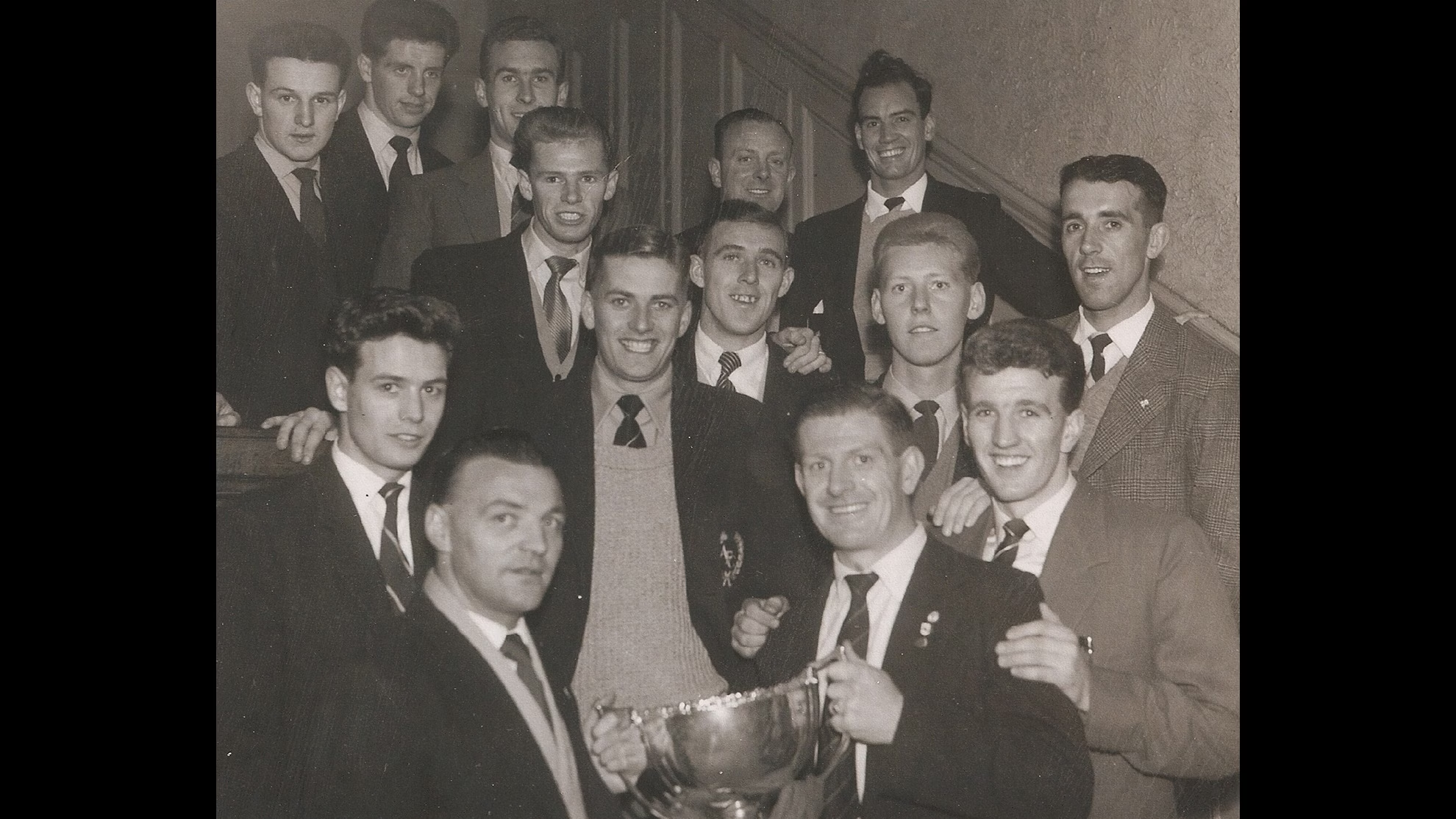
Bobby joined the Dons from Musselburgh Athletic in 1954 and emerged through the Aberdeen reserve side, being handed his chance after injury to regular right-half Jackie Allister.
The right half broke into the first team via the League Cup in September 1955 in a game against Clyde. He played in the successful run to the final, beating Hearts and Rangers, and secured a winner’s medal on that special day in October 1955. At the end of the 1956/57 season, he moved to Norwich City and later to Gillingham, Accrington Stanley – where he was captain – and Chester City.
Playing for AFC though was one of his proudest achievements, picking up a winner’s medal after only nine senior games. His run in the cup side in 1955 was not dissimilar to Derek McKay in 1970 and Oday Dabbagh in 2025. Bobby proudly kept his shirt and medal from final.
Apart from the League Cup final, Bobby would always remember touring North America and beating English champions Chelsea in September 1955 as highlights of his time at the club. Aberdeen were arguably the best side in the UK at that time. As he recalled, “The game was billed as the Championship of Britain as Chelsea were English Champions and Aberdeen the Scottish Champions. The result was a win for Aberdeen, 4-3.”
He made 29 first team appearances for Aberdeen, scoring one goal. AFC Heritage Trust Profile
Bobby would go on and become a member of Norwich City squad that got to the FA Cup semi-final in 1959 and became famous as captain of Accrington Stanley when they resigned from the English League in March 1962. He would return to Scotland to manage Arbroath Vics from 1970 to 1975.
Living in Broughty Ferry, Bobby was a very keen golfer and always supported the annual AFC Former Players’ golf event. He loved catching up with old colleagues and friends. A regular visitor to Pittodrie, he also continued to follow the Dons until his passing on Friday 24th October 2025, aged 91.
Our thoughts are very much with his friends and family at this sad time.
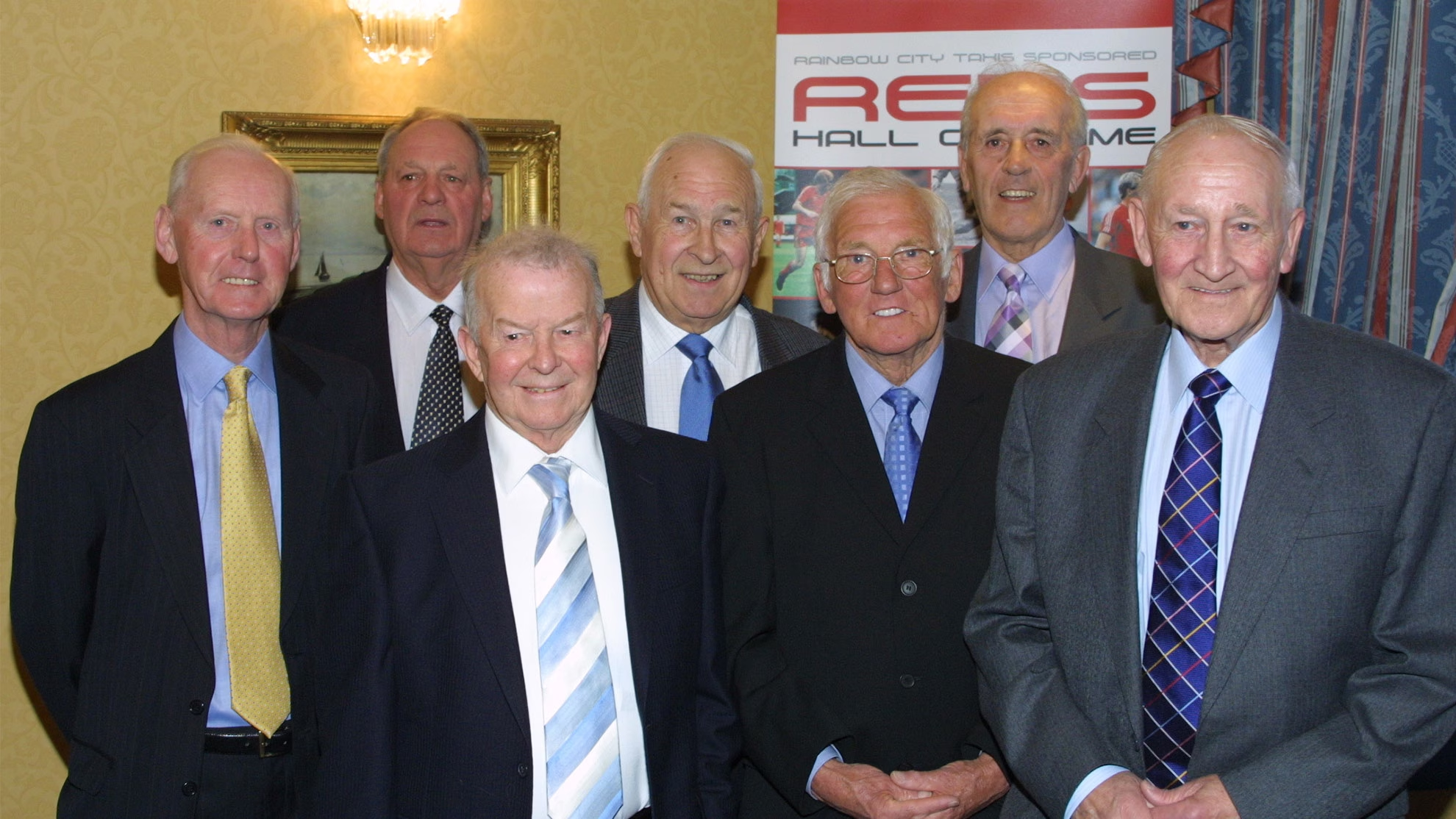
Bobby Wilson – the Interview
For many professional footballers a senior honour proves elusive no matter how long their career lasts. So for a player to collect one after only nine games seems almost incredible. However, that is exactly what happened to Bobby Wilson when he played for Aberdeen in the League Cup Final against St Mirren in 1955.
Robert Smail Whitelaw Wilson was born in Musselburgh, 29th June 1934. He recalled his early days during an interview for Red Matchday Magazine a few years ago.
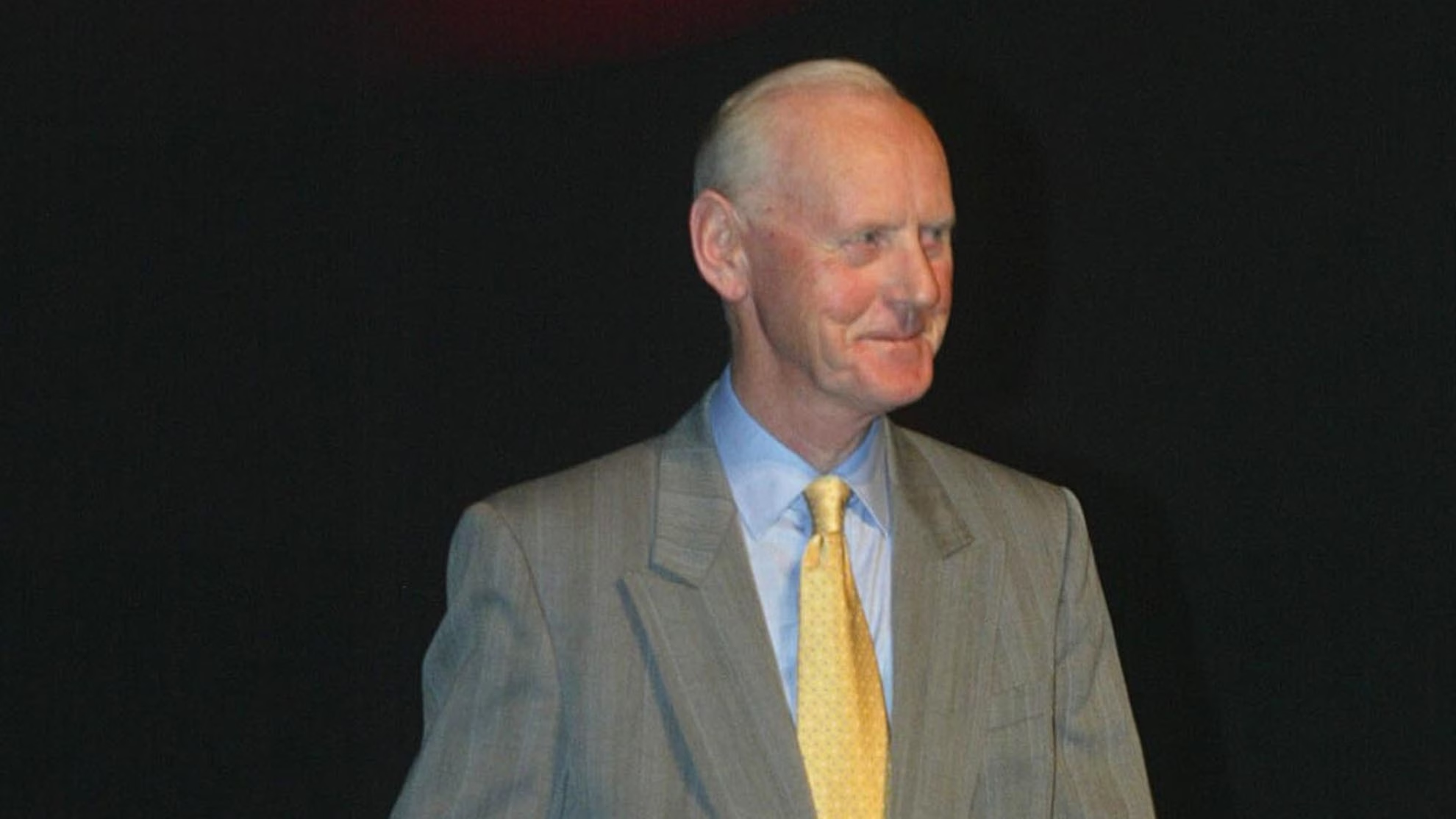
National Service
“On leaving Musselburgh Grammar School in 1949 to work in the South East Scotland Electricity Board offices there, I joined Edinburgh Norton F.C., an under-17s Juvenile Football Club. We would train twice a week and I often walked the five miles back home rather than take the bus, as I felt it would add to my fitness.
“Whilst with them I was selected to play for Edinburgh & District Juveniles against Glasgow. We won a few trophies and I knew senior clubs were looking at me and I went to Blackburn Rovers for a trial. That was an exciting experience but nothing came of it and I returned to sign for Musselburgh Athletic, my local Junior team.”
Part of adult life back then was the mandatory stint in the National Service which was accepted by any aspiring footballer. Often that would lead to players taking a different route in life, especially as they could not start a footballing career until they were at least 20, but Bobby was not keen on extending his stay in the Forces.
“I was called up for National Service in the Royal Army Service Corps. I spent two years in England playing just midweek football, although I had been offered a permanent posting at Aldershot after basic training in order to play for the Battalion team, but I wanted away from Aldershot, very much an Army town. When I was demobbed in September 1954 it was back to Musselburgh Athletic and the Electricity Board offices, but only briefly.”
Despite initially being overlooked by professional clubs as he carried out his National Service, as that came to an end, Bobby was sought after by both Aberdeen and Leeds United.
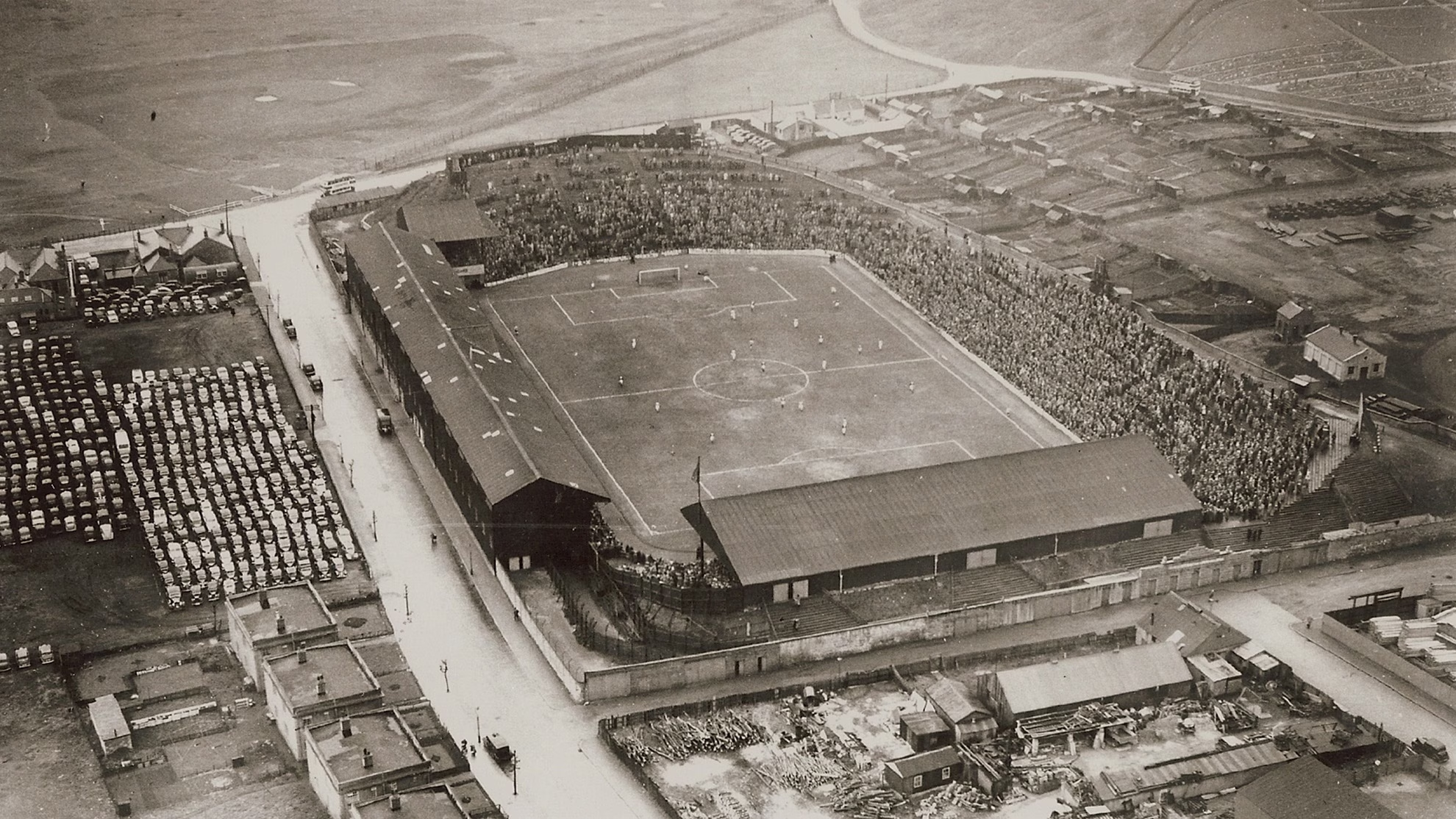
Signing for Aberdeen
Noted for his intelligent use of the ball and the ability to support his forwards in attack, Bobby was invited to play a trial for Aberdeen reserves against Hibernian in November 1954.
“Aberdeen’s chief scout Bobby Calder made contact with me and arranged for me to play in a reserve team match at Easter Road on 6th November 1954 between Aberdeen and Hibs. Manager Dave Halliday travelled with the team to watch me play and I was delighted to sign for Aberdeen F.C. in my Musselburgh home after the match.
“Halliday almost missed catching the train back to Aberdeen with the team as my father kept asking him questions, I was just happy to have signed on the dotted line! Aberdeen was a top club and I really fancied it. My mum was less happy that I had just returned from my National service and now I was moving to Aberdeen.
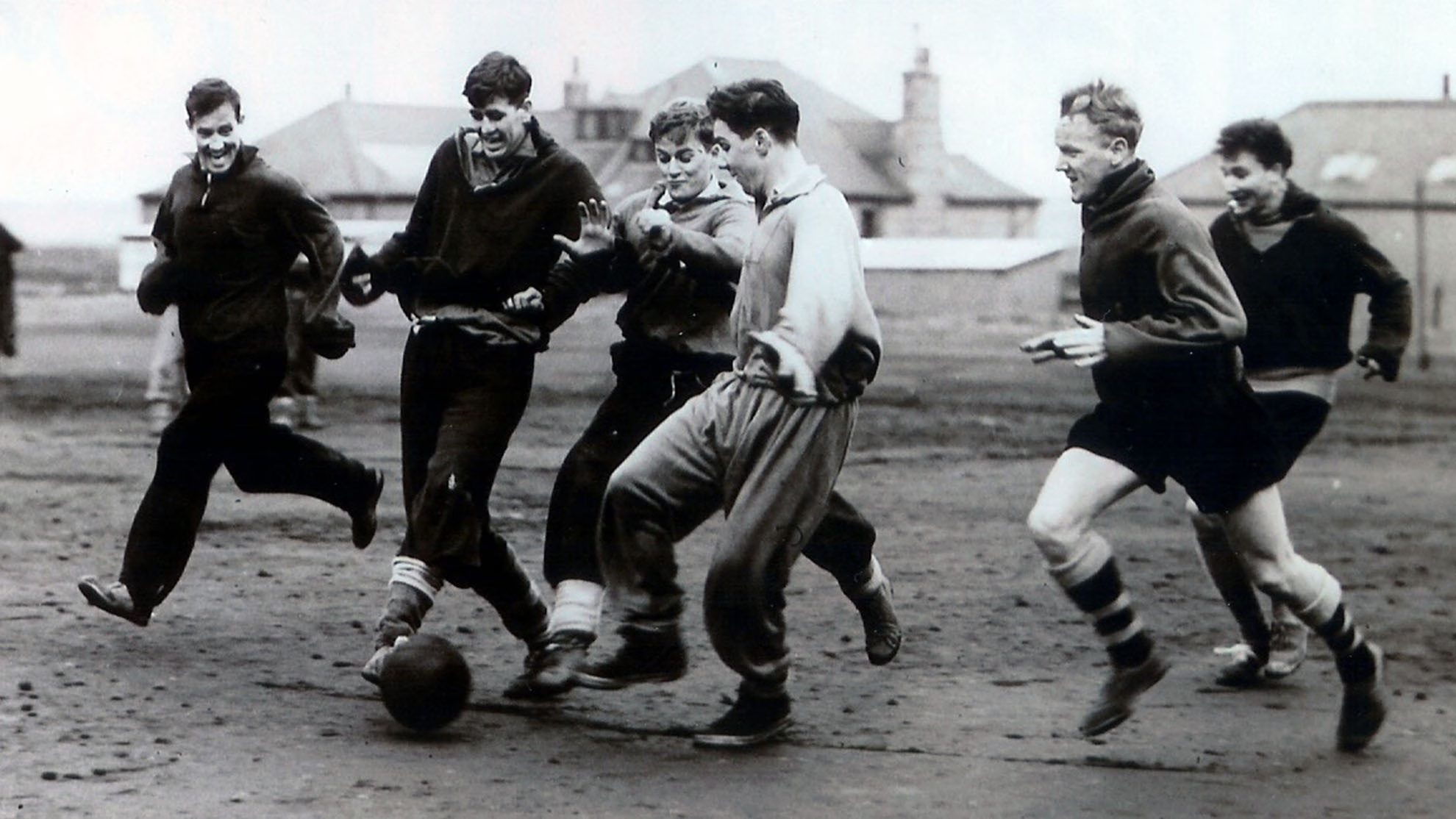
“Jim Clunie and George Hamilton were particularly helpful that day on the pitch and George was to play a big part in my development in my early days at Pittodrie. I was called up straight away to be a full time professional which had been my ambition for all my teenage years.
“Aberdeen were one of the elite clubs in Scottish football along with Rangers, Celtic, Hearts and Hibernian. I had never been to Aberdeen before and I liked the city immediately. Although used to a big city in nearby Edinburgh in my youth, Aberdeen was quite different. The people were very friendly and I had excellent digs, particularly with Mrs Adam in Seaforth Road. Husband Andy was a basket maker in the fish market, an obsolete trade now, but it did mean I got lots of fresh fish for meals.”
Pittodrie also made an immediate impression on Bobby: “Pittodrie was an impressive ground and well known in the game, a real football ground. The playing surface always seemed immaculate and I couldn’t wait to get playing on it. However I did not get too many games to start with, it took me three months or so to reach the fitness required for full-time professional football”.
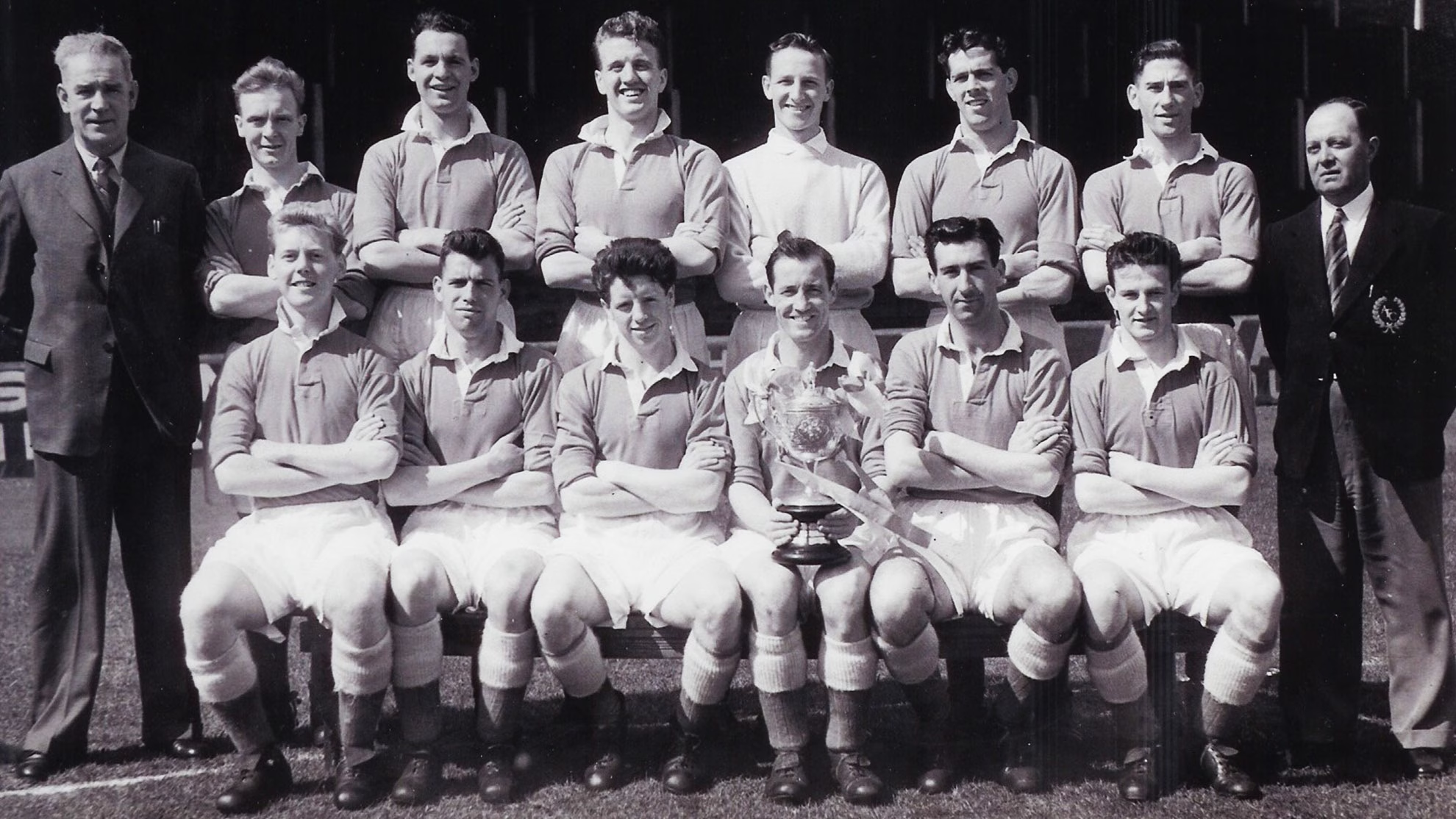
Football was certainly different back then; squad rotation was unheard of and any talk of a player pool would have meant a trip to the local baths. There was a first XI that would be settled and only injury or bad loss of form would lead to them being replaced. Any replacements would be selected from the reserve side and normally it would be the corresponding player from any position.
“It was towards the end of 1954/55 before I finally became a regular in the reserve team. Aberdeen had 30 full-time players and a few part timers, so competition for places even in the reserve team was keen. The first team were doing great things then, eventually winning the League title and the ‘A’ team won just about everything going. At that time, the club could field internationals such as Fred Martin, Archie Glen. Graham Leggat, Paddy Buckley, Harry Yorston and Bobby Wishart.
“Graham Leggat was the best player I ever played with, George Hamilton a close second.
“The good thing was that after a practice match most Tuesday mornings, we all trained together for the rest of the week whether it be on the track, under the stand or on the beach, but seldom on the pitch again. Harry Yorston, Bobby Wishart and Jack Hather were great pals and they decided to take me under their wing after training to join them for lunch at the Strathdee Café in Union Street. We would spend lots of time there talking football and other subjects and of course their experience and advice was invaluable to me.”
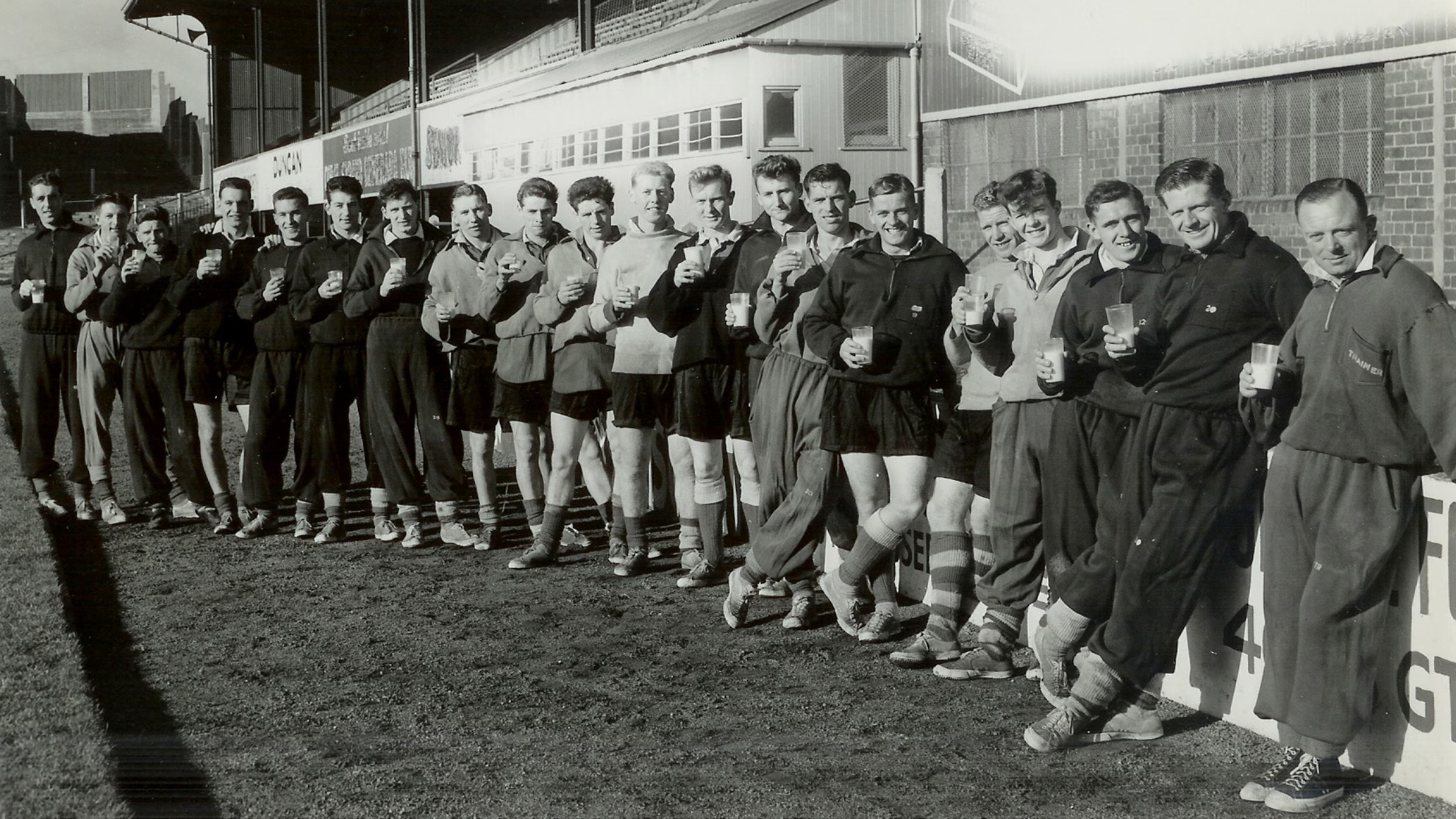
Aberdeen Debut
With Jimmy Wallace and Joe O’Neill also competing for the reserve right half position Bobby found his reserve opportunities limited in his first season. However, he would start the following season as first choice reserve left half but his stay in the reserves was short. After impressing sufficiently in the reserves, on the 3rd September 1955, Bobby got his big break. Jackie Allister had been laid low with tonsillitis and big Joe O’Neil was out through injury. That offered Bobby the right-half role in the side.
“I made my debut in the League Cup at Clyde, which was a great experience, we won 2-1, and the following week, we were at Pittodrie against Hibernian in the League. As a boy from Musselburgh, Hibernian and Hearts were the two teams I used to go and watch from the terracing. Hibs famous five forward line and Hearts inside trio of Conn, Bauld and Wardhaugh were all my heroes with the great Gordon Smith being the ideal role model of a professional footballer. When I ran out on to the pitch that day, I could hardly believe I was about to play in a match with all these stars.
“However once the whistle went it was down to business and not only did we win convincingly, 6-2, Manager Hugh Shaw of Hibernian admitted his team had been outclassed. I made a point of shaking hands with Gordon at full time!”
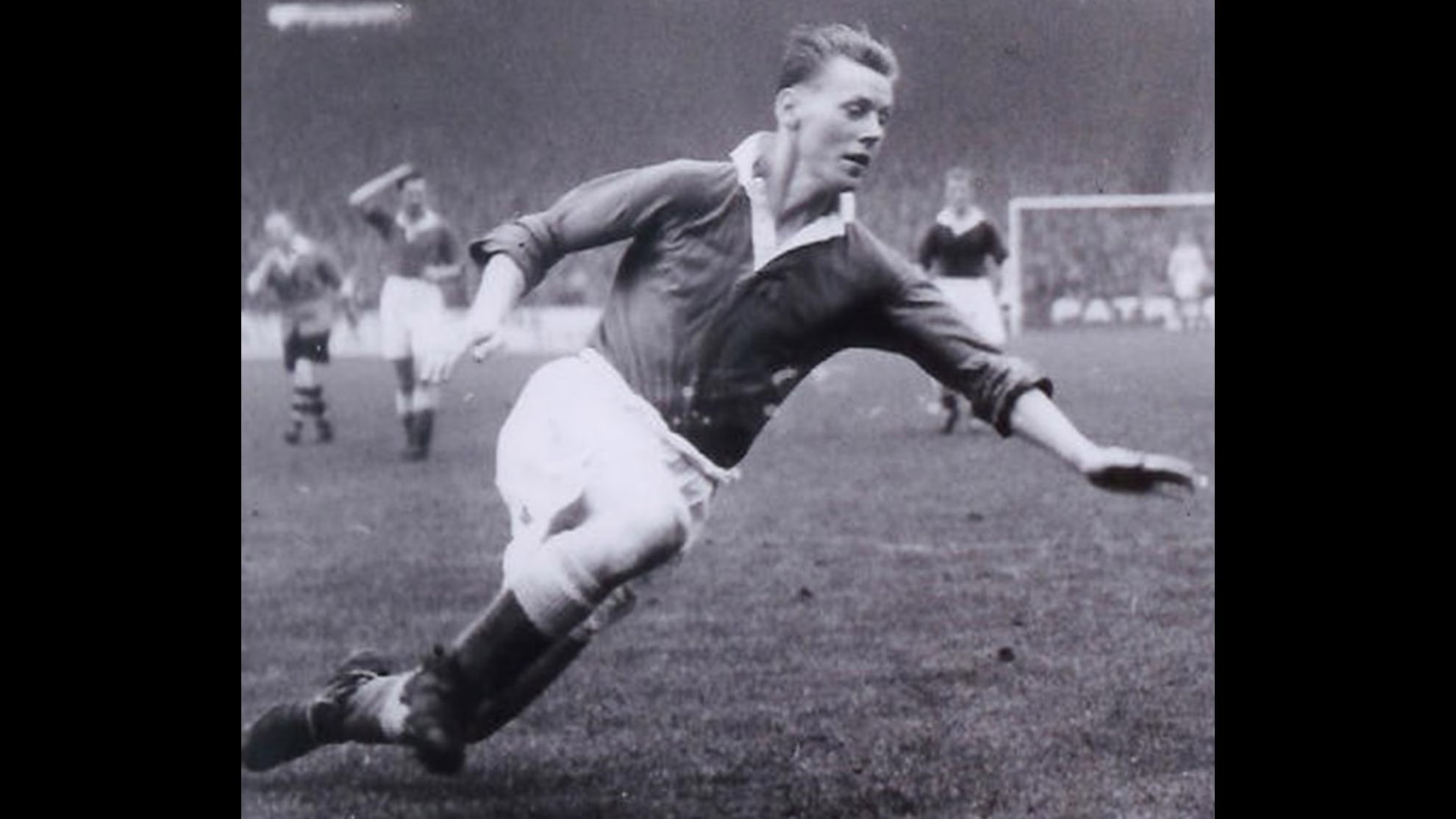
His third first team game was against Hearts in the League Cup quarter-final.
A 30,000 crowd watched the Dons win 5-3 with the half back line of which Bobby was a member being ‘outstanding’. Despite a quieter game in the second leg at Tynecastle in the Saturday, Bobby did enough to help the Dons to a 4-2 victory. A few weeks later on the 1st October Bobby took to the field at Hampden against Rangers in the League Cup semi-final. The Dons produced a fantastic performance where despite being reduced to ten men for most of the second half having had Graham Leggat stretchered off they defeated the Glasgow side 2-1 to progress to the League Cup Final, Bobby playing his part.
As league champions, Aberdeen were seen as the team to beat and Bobby retained his place in the side despite Jackie Allister recovering from illness. Aberdeen were in impressive form and they had made their way to the League Cup final and were the only undefeated team in British football going into the Hampden final against St Mirren.
“I managed to keep my place in the team for three or four months and my time in the team coincided with the League Cup semi-final against Rangers and then the final. Back then, Celtic and Rangers were just another game. We always felt we could beat them and we often did.
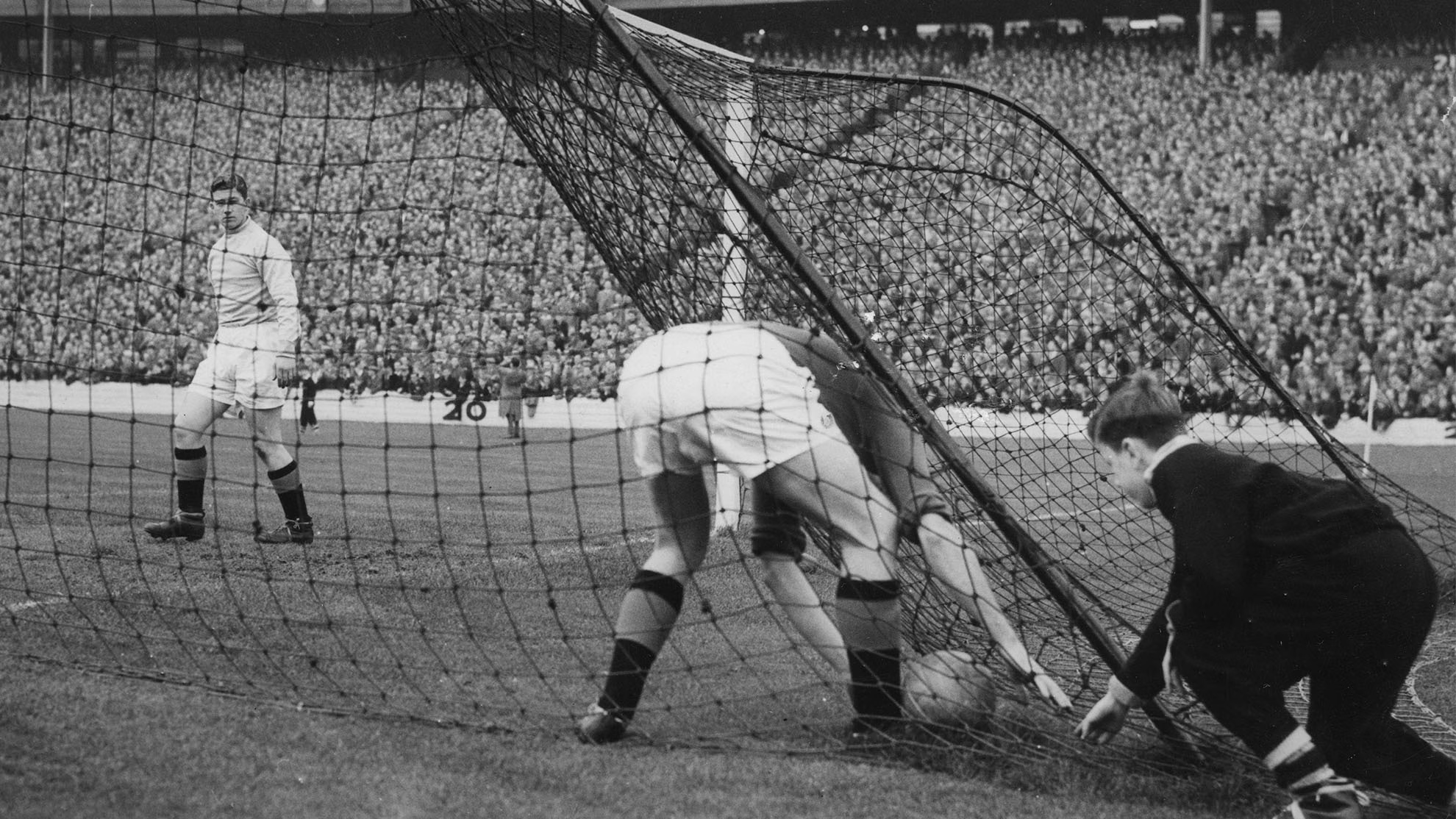
League Cup Final
Bobby returned to Hampden on the 22nd October 1955 as the Dons faced St Mirren in the League Cup Final. 44,000 people turned up to see Aberdeen win 2-1 with Bobby putting up a good show against the potent Tommy Gemmell, probably St Mirren’s most accomplished forward.
“The week before the final, we played St. Mirren in the league away and won 3-0, and I was of course really enjoying all these matches. We were hot favourites to win the final but it turned out to be a very close affair and it took a touch of Graham Leggat’s magic to settle the result and give us the trophy.
“I was happy to play a small part in the winning goal. At 1-1 with ten minutes to go, I got possession from a throw-in just inside the St Mirren half and passed a short ball to Graham who carried it forward then cut inside full-back Jimmy Mallan. Graham then hit the ball with his left foot for the far post. The ball sailed over goalkeeper Jim Lornie and dipped under the bar at the far post. Some newspapers called it a “fluke” but I had seen Graham practice this shot often at training from the right wing. He was a top notch player, there is no doubt about it”.
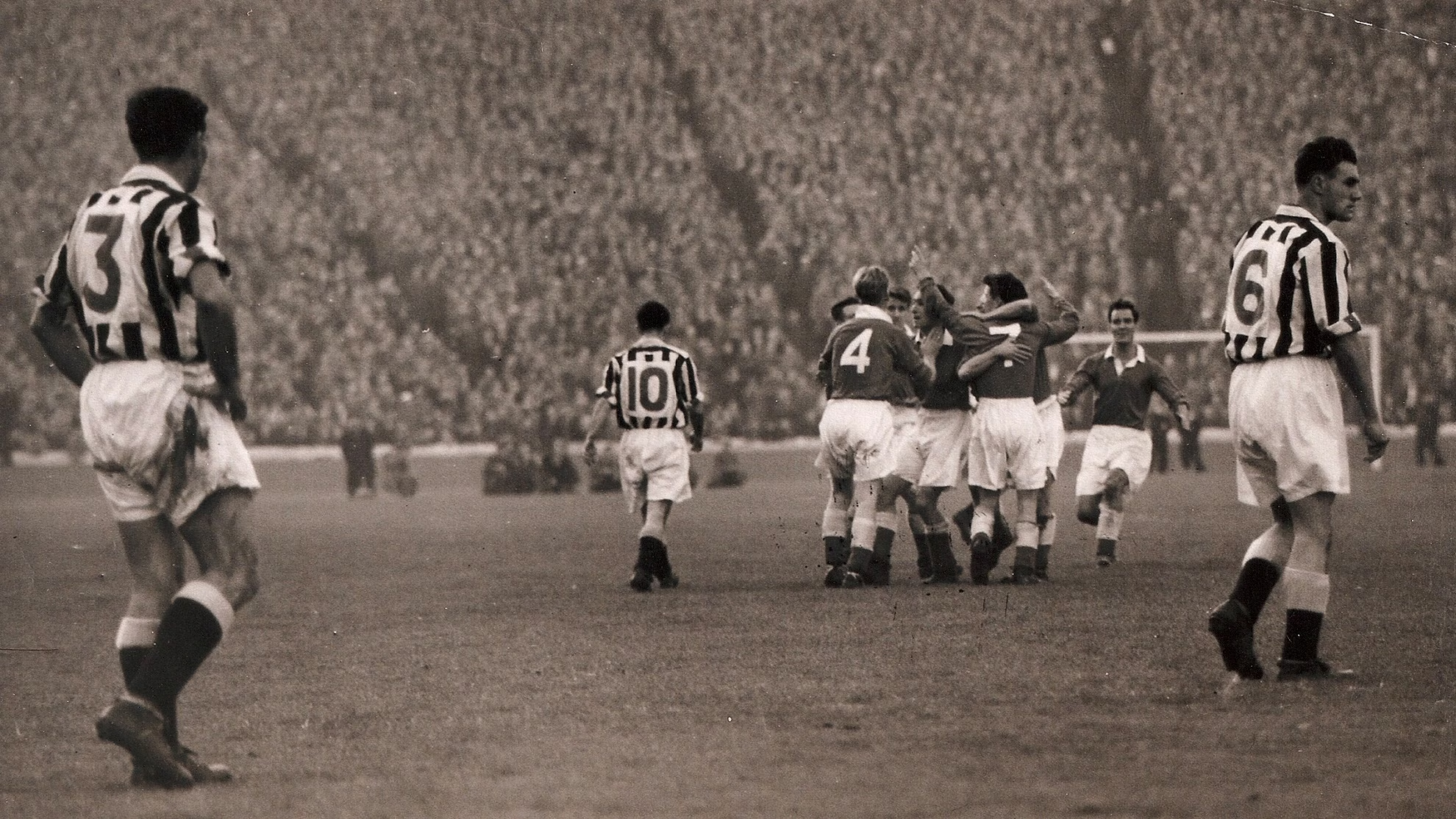
That day was the highlight of Bobby’s career.
“The final at Hampden was only my ninth first team appearance. I remember Tommy Pearson, the ex-Dons player and manager who was writing for the Daily Mail at the time, telling me that I was a lucky young man to be a winner so early in my career. Tommy said many players go through a whole career and not win anything like this.
“I also remember Dave Shaw our manager telling us before the semi-final against Rangers that when we ran out on to the pitch, we should take a few seconds to look around all the way up the huge terraces. We were encouraged to take it all in and appreciate that games and occasions like that don’t come around that often.”
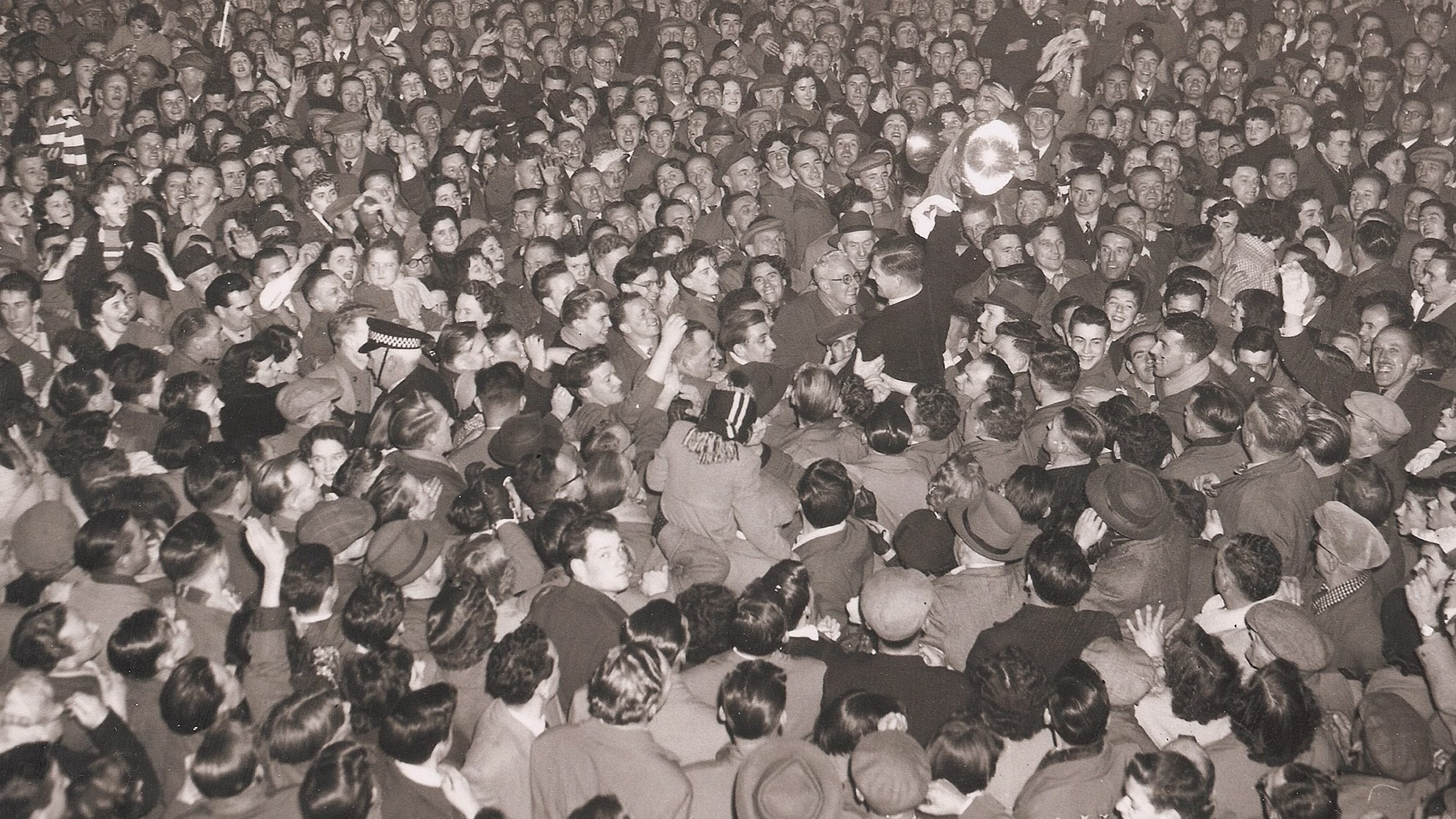
The following month he would score his only senior goal for Aberdeen against Motherwell at Pittodrie when he headed home the equaliser.
Bobby’s run in the first team came to an end against Raith Rovers on the 26th November 1955. With Jackie Allister fully fit manager Davie Shaw couldn’t ignore the more experienced man. However, with Allister out injured the following March Bobby would return to the first team briefly for three games. He would start the 1955-56 season in the first team with Jackie Allister out with a foot injury but after only two appearances and Allister fit again Bobby was back in the reserves. Another injury to Jackie Allister saw him out with an ankle injury in December 1956 and it produced his longest run in the first team that season nine appearances.
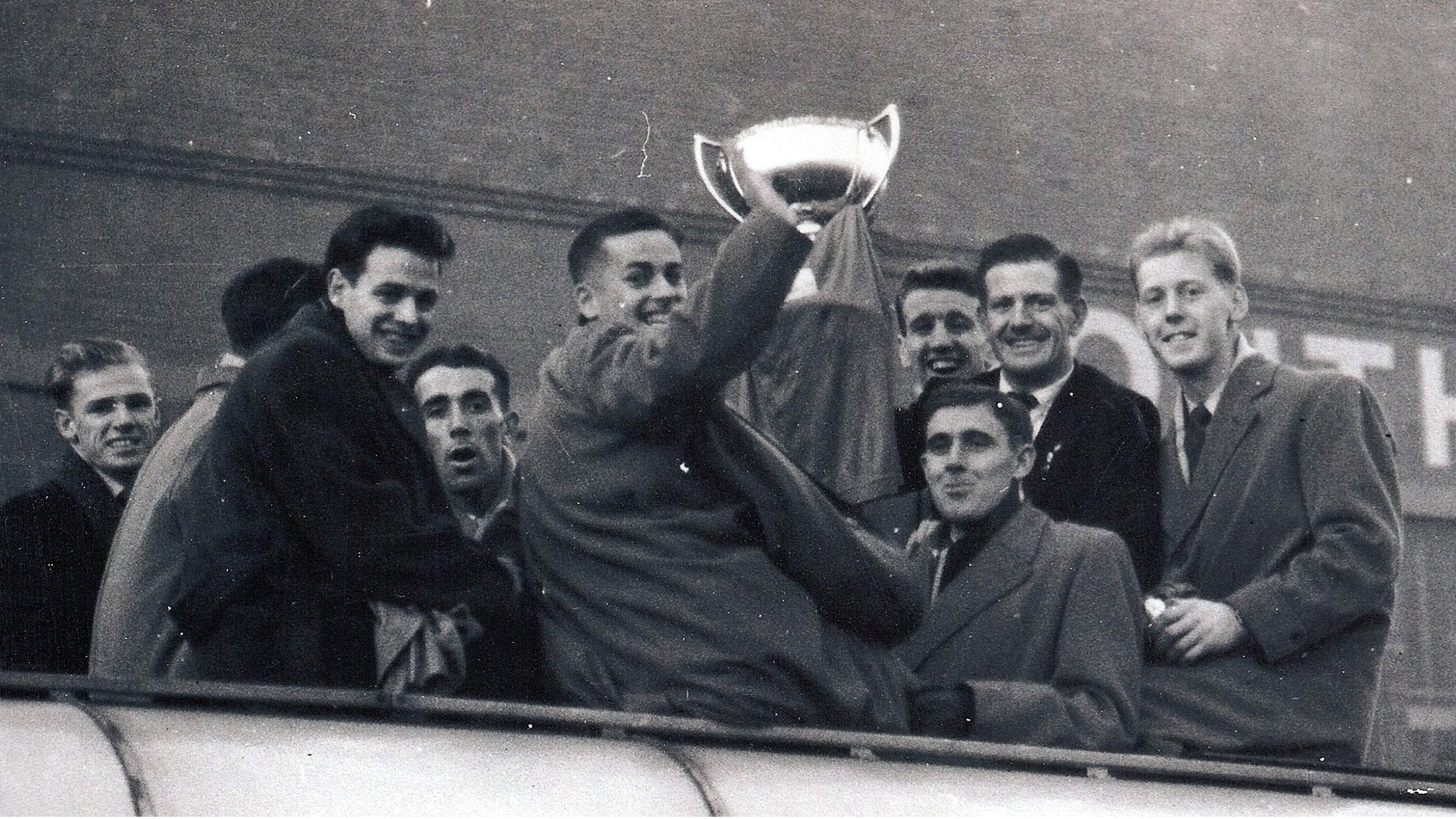
North American Tour
On the back of the Dons’ success in the league and League Cup, the club attracted interest from Canada and Aberdeen were invited to tour in the summer of 1956. Bobby recalled it as a trip of a lifetime.
“As one of the 17 players chosen for the trip it was great thrill for me to go on the North American tour. Following a long voyage to Quebec and a train trip to New York, our first match against Everton was postponed due to heavy rain. I had an uncle who lived and worked in nearby Kearny. He phoned our hotel, the Governor Clinton, and asked if I could bring out the players to his Scottish-American golf club for a meal now that the game was off.
“I got permission from the manager and most of the players agreed to go. My Uncle Sam no less, arrived with a fleet of limousines and drivers wearing dark glasses despite the rain. At one point it looked like we were being kidnapped by the mafia! When we arrived at the club, we were given a rousing reception and the first thing we noticed was the tables full of large jugs of beer. We were glad manager Dave Shaw stayed behind at the hotel! We had a great time with all of the expats and it was all part of a fantastic experience.”
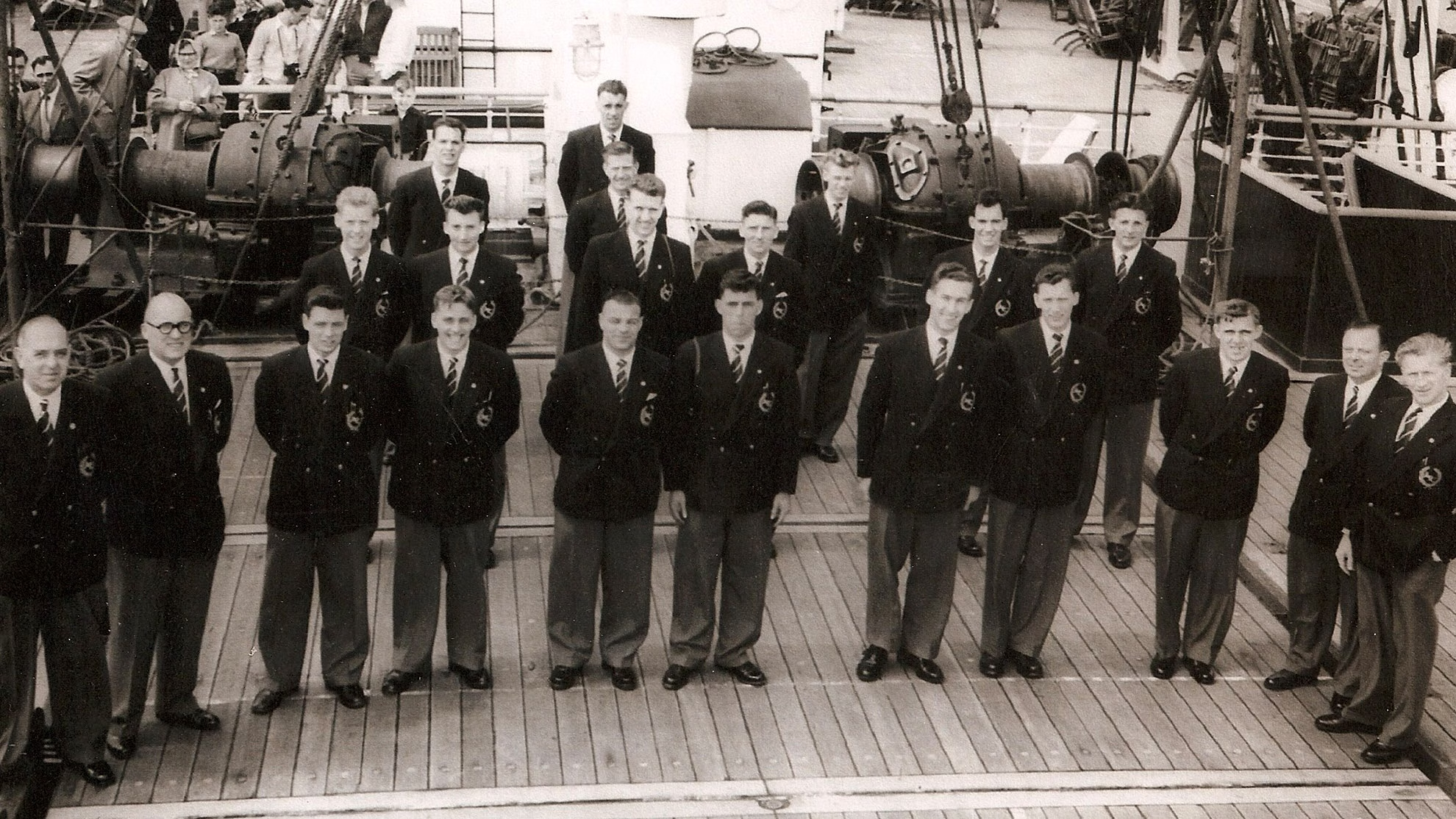
Norwich City
After three seasons with the club, Bobby was shocked to be told that he was being freed.
“By then I was well settled at the club and had met my future wife Sheila, an Aberdeen girl. However that’s football, and I had offers to consider in Scotland and England. Archie Macaulay the former Rangers, Arsenal and Scotland wing half had just been appointed manager at Norwich City. He had been coach at Dundee, so he knew all about me. He had been a wing-half like me so I reckoned he could give me good coaching and it seemed a good club to join.
“It did turn out well as in my first season with them, I only missed one first team appearance and probably played the most consistent football of my career. Like Aberdeen, Norwich is a fine City, has good football support from the town and the County. I really enjoyed my three years there and in my second season, I was part of the squad that went all the way to the FA Cup semi-final.”
It was also at Norwich that Bobby got to play against his toughest ever opponent.
“When Norwich played the Army in a friendly in 1958 – Bobby Charlton was doing his national service. The name tells you everything – he is one of the all-time greats.”
“In my third season, I had lost my regular first team place and Gillingham put in an offer for my transfer. I decided to go there for regular first team football but it turned out to be a bad move. Although I was a regular in the first team, I was not enjoying my football nor the off field location so Sheila and I decided we would like to move on at the end of the season. I then signed for Accrington Stanley”.
Accrington Stanley
This famous old club was having hard times. In early March 1962 the club directors, facing losses of £60,000, decided to resign from the Football League. It was huge story at the time.
“This meant the club was in liquidation and our contracts were not to be honoured. As captain, I had to deal firstly with the media, it was big news at the time and I did interviews for the BBC 9 O’Clock News and numerous newspapers. As players, we needed to know our exact situation. Neither the Players Union nor the Football League was in any hurry to help us. I got the impression that the Professional Footballers Association under the leadership of Jimmy Hill was more interested in getting the maximum wage abolished than helping us. Eventually the Football League took over our contracts to the end of the season”.
Installed as the Accrington skipper, he gave sterling service to Stanley in his only season at Peel Park. Playing in all 36 League and Cup fixtures and despite all the financial troubles he enjoyed his spell at Accrington, citing the family atmosphere and excellent team spirit. He was even asked to play centre-half, a position he didn’t have had the height for but, he often received good reviews and was said to organise his defence well. When the team folded on 5th March 1962 his 33 League games were expunged. A free agent Bobby was offered a months trial at Preston North End but he was seeking a full-time football and signed for Chester.
His final League appearance came six months later at Oxford United. When a promised house never materialised, he decided that it was time to go part-time, and sought and gained his release in order to join Sankey’s of Wellington (later GKN Sankey). Playing football part-time, Bob worked full-time for Sankey’s, working in engineering purchasing, eventually becoming Senior Buyer whilst managing the football team. In 1970 Bobby returned to Scotland to take up a managerial position outside football in Dundee and he went on to manage Arbroath Vics for five years. Bobby lived in Broughty Ferry, and enjoyed a game of golf in Carnoustie.
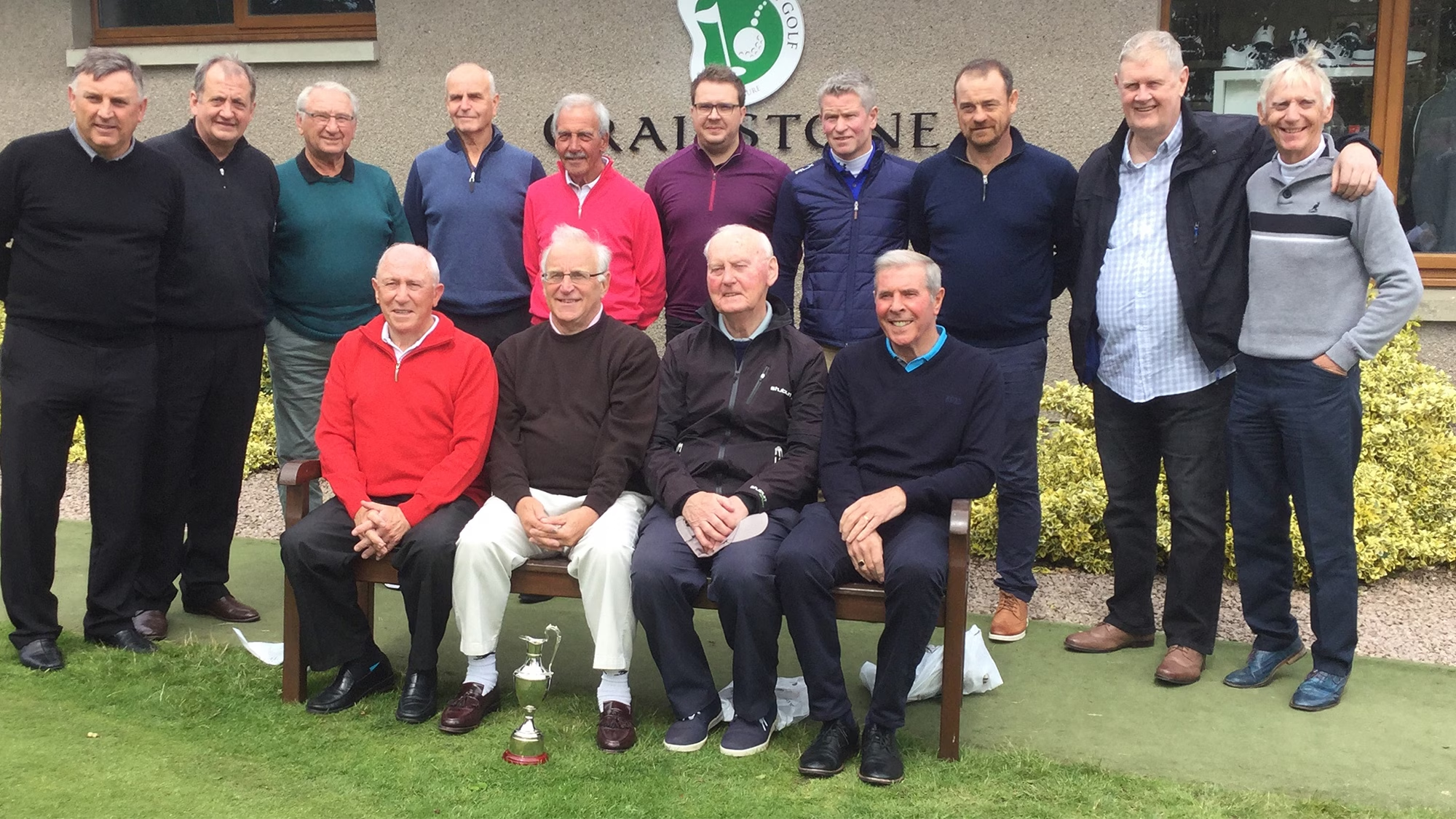
1955 League Cup Team photo
A numbers of years ago Bobby approached the club with a special request.
“My greatest moment in football was winning in the League Cup in 1955 but the one regret I have always had is that a team photograph in our playing kit was never taken on the day or afterwards. So I contacted the club to see if, by using modern technology, they could help”.
In honour of Bobby and all the players from that team we created a special team photo for the AFC historic archives.
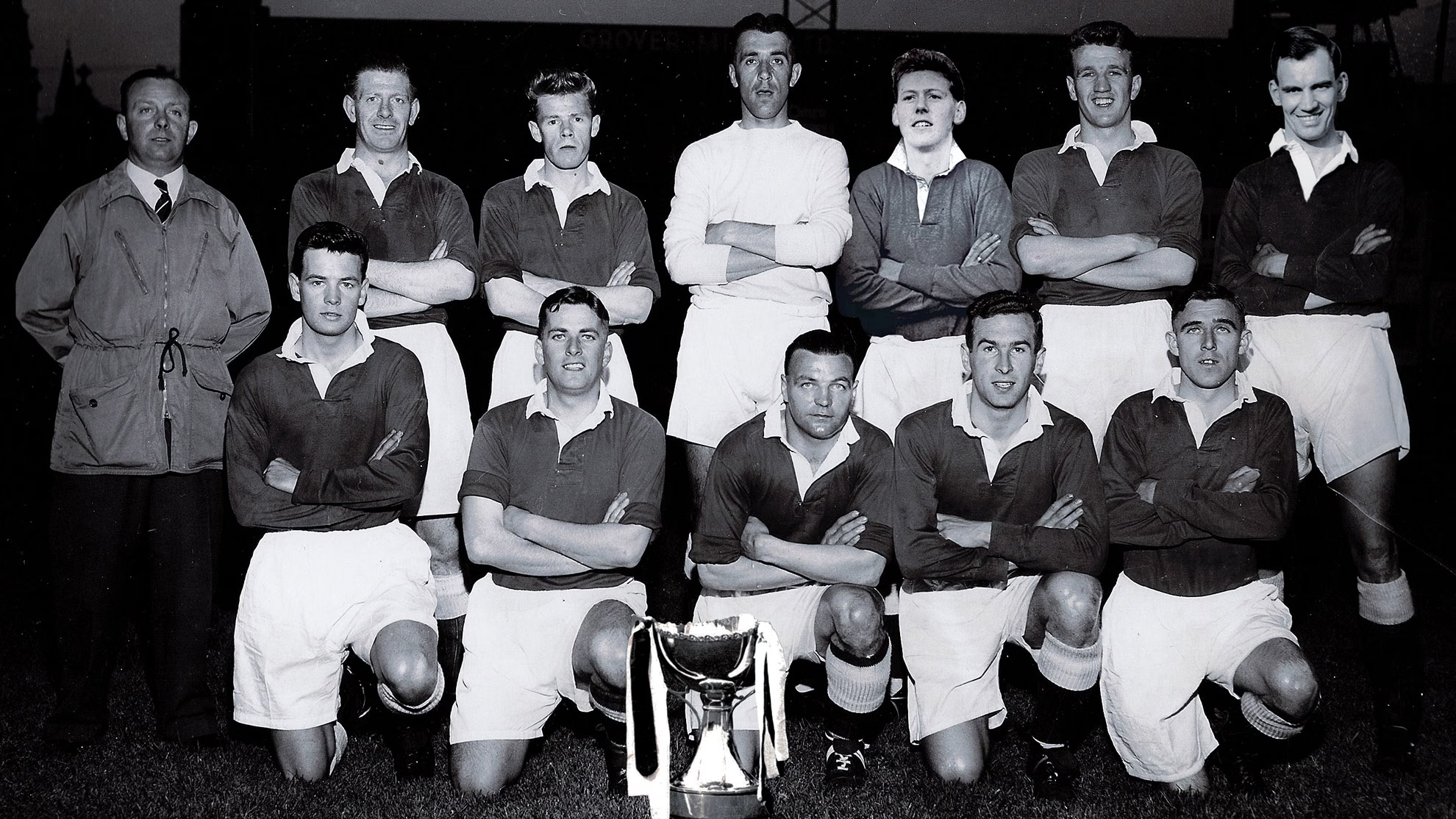
Aberdeen 1955/56 Scottish League Cup Winners:
Back Row (left to right) Charlie McCaig (Trainer), Jimmy Mitchell (Full Back), David Caldwell (Full Back), Fred Martin (Goalkeeper), Bobby Wilson (Right Half), Jim Clunie (Centre Half), Archie Glenn (Left Half).
Front Row Graham Leggat (Right Wing), Harry Yorston (Inside Forward), Paddy Buckley (Centre Forward), Bobby Wishart (Inside Forward), Jackie Hather (Left Wing).
Rest in Peace Bobby, and all our legends from 1955.
